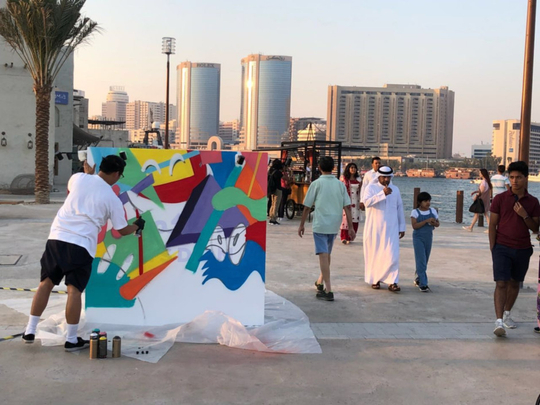
Abu Dhabi: The National Creative Relief Programme, now in its second phase, has provided financial grants to 53 individuals and companies operating in the creative and cultural sector.
Launched by the Ministry of Culture and Youth as a response to the economic impact of COVID-19, the programme has supported 140 creative individuals and organisations with grants ranging between Dh15,000 and Dh75,000 over two phases, granting a total of Dh4.6 million in support of the creative sector.
The programme covered part of the recipients’ financial commitments to help them sustain their creative work in the community.
The most prominent creative sectors that applied for the grant include performing arts, multimedia art, visual arts, as well as design and creative services.
The grant contributed to cover 100 per cent of monthly average financial commitment for creative individuals, and a month and a half for companies.
Positive impact
“The [programme] carries the values of solidarity and compassion that are inherent in the UAE society. These values not only help overcome an exceptional circumstance all over the world, but also help individuals and companies to continue their creative practice and ensure that the cultural sector has a positive impact on the development process in the country,” said Noura Bint Mohammad Al Kaabi, Minister of Culture and Youth.
“Creativity is a reflection of a strong society. The more creative the society is, the more powerful it is to face challenges and overcome them to create a better future. The programme has been able to provide financial support to 140 individuals and companies and we are conducting regular sessions with the creative community to understand their needs to come up with policies and legislation for the cultural sector to be able to respond to changes and developments in the future.”
The applications were reviewed and evaluated by a specialised committee and according to specific criteria that included size of loss as a result of cancellation of contracts or projects, negative impact on cash flow, efforts made for business sustainability, and proof of work produced in the country in 2019.








